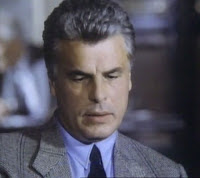Propaganda Due suspects named
Italy horrified as list reveals alleged members of ‘secret state’
Ordinary Italians were stunned and the country’s elite rocked to the core on this day in 1981 when a list was made public of alleged members of Propaganda Due, a secret Masonic lodge which sought to run the country as a ‘state within the state’. A staggering 962 names were on the list, including 44 members of parliament, three of whom were cabinet ministers, 49 bankers, numerous industrialists, a number of newspaper editors and other high-profile journalists, the heads of all three of Italy’s secret services and more than 200 military and police officers, including 12 generals of the Carabinieri, five of the Guardia di Finanza, 22 of the army and four from the air force. The existence of the illegal, underground lodge, known as P2 had been rumoured for several years but there had been little concrete evidence until magistrates investigating the collapse of the Banco Ambrosiano in Milan raided the home in Tuscany of Licio Gelli, the former Fascist financier who turned out to be the Grandmaster. The list of alleged members, which was made public by Prime Minister Arnaldo Forlani on the advice of the prosecuting team, was found among paperwork seized in the raid. Read more…
________________________________________________________________
Angelo Bruno - Mafia boss
Sicilian head of Philadelphia mob known as 'the Gentle Don'
Angelo Bruno, a mobster who ran the Philadelphia Mafia for two decades, was born Angelo Annaloro in Villalba, in the province of Caltanissetta, in Sicily, on this day in 1910. Bruno was known as “the Gentle Don” because he preferred to solve problems and consolidate his power through non-violent means, such as bribery, and commissioned murders only as a last resort. The son of a grocer, he emigrated to the United States in his teens and settled in Philadelphia. He became a close associate of New York crime family boss Carlo Gambino. Bruno dropped the name Annaloro and replaced it with his paternal grandmother's maiden name, Bruno. Bruno’s dislike of violence was not driven by any compassion for his fellow man. During his early days in Philadelphia, he worked for a series of bosses and did not shirk the tasks he had to perform in order to rise through the ranks, which included carrying out killings himself. But in 1959, when he succeeded Joseph Ida as boss of the Philadelphia crime family, he decided it was in his interests and those of his criminal organisation to operate in a way that avoided attracting unwanted attention. Read more…
__________________________________________________________________
Michelangelo’s Pietà damaged
Work of art deliberately vandalised
Michelangelo’s beautiful Pietà, a marble sculpture of the Virgin Mary with the dead body of Jesus lying across her knees, was damaged by a man wielding a hammer on this day in 1972 in Rome. A mentally disturbed man walked into St Peter’s Basilica and attacked the sculpture in an act of deliberate vandalism. He struck it 15 times, removing Mary’s arm at the elbow, knocking off a chunk of her nose and chipping one of her eyelids. Some of the pieces of marble that flew off were taken by some of the people who were in the church at the time and Mary’s nose had to be reconstructed from a block cut out of her back. The man who carried out the attack was said to be suffering from a delusion that he was Jesus Christ risen from the dead. He was not charged with any crime but spent two years in a psychiatric hospital. After the restoration work was completed the sculpture was returned to its place in St Peter’s, just to the right of the entrance, and it is now protected by a bulletproof acrylic glass panel. Michelangelo carved this sculpture from a single piece of Carrara marble in 1499 when he was only 24 and it is the only work he ever signed. Read more…
_______________________________________________________________
Pandolfo Petrucci – ruler of Siena
Ruthless tyrant who encouraged art
Pandolfo Petrucci, who during his time ruling Siena was one of the most powerful men in Italy, died on this day in 1512 in San Quirico d’Orcia in Tuscany. Although he had been a tyrannical ruler, Petrucci had also done a great deal to increase the artistic splendour of his native city. Petrucci was born into an aristocratic family in Siena in 1452. He had to go into exile in 1483 for being a member of the Noveschi political faction, which had fallen out of favour with the rulers of Siena. After he returned to Siena in 1487, he began to take advantage of the struggles between the different political factions. He married Aurelia Borghese, who was the daughter of Niccolò Borghese, an important figure in Siena at the time. After entering public office himself, Petrucci acquired so much authority and wealth that he became the ruling despot of Siena with the title of signore - lord. His rapid rise to power alienated his father-in-law, who conspired with other influential citizens in Siena to assassinate him. However, Petrucci uncovered the plot and in 1500 had Borghese murdered. This act terrified his other enemies, which left Petrucci in complete control. Read more…
Home















